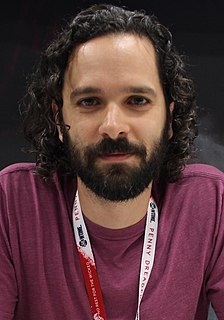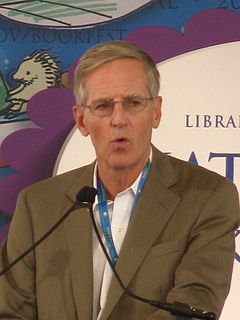A Quote by Alice Mattison
I've been astonished how often, when I convince a writer to tell a story more straightforwardly and to tell it more simply and directly, it turns out that this author is great and the story is wonderful.
Related Quotes
If you gauge how you're doing on whether somebody is responding vocally or not, you're up a creek. You can't do that; you kind of have to be inside of your work and play the scene. And tell the story every day. Tell the story. Tell the story. Regardless of how people are responding, I'm going to tell the story.
I want studios that make story-based games to start taking their stories more seriously. And that doesn't mean hiring a big shot writer from Hollywood; it means that story becomes integral to making your game. I don't see how you can achieve that without having an in-house writer that sits next to the designer, helping them make their levels, talking with the engineers about where we can tell the story more dynamically, pushing at technology.
Great historians can make the discovery of the real story more exciting than the romantic myth. Stacy Schiff, a great historian as well as a wonderful writer, peels away the layers to reveal the true Cleopatraa much more interesting woman than the Hollywood version and, as it turns out, a formidable queen after all.
The biggest threat to your creativity is the fear that it's already been done, said, created. (So why bother?)
Say it, do it, make it anyway - but tell YOUR story along the way.
The story of how you came to know what you know.
The story of what you want to know more of.
The story of why you do what you do.
The story of how you came to care.
And that's how you create what's never been created before.
People that have known me for a while tell me how they see me grown as an artist and as a writer. I think that this comes with continuing writing each day. I try to write as often as I can and explore more while I do it. I feel more comfortable with opening up and telling more of my story to everyone.
It's only a story, you say. So it is, and the rest of life with it - creation story, love story, horror, crime, the strange story of you and I. The alphabet of my DNA shapes certain words, but the story is not told. I have to tell it myself. What is it that I have to tell myself again and again? That there is always a new beginning, a different end. I can change the story. I am the story. Begin.







































